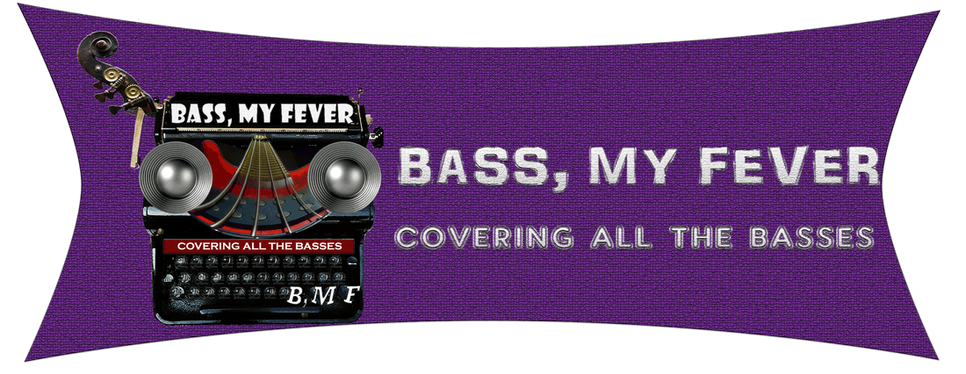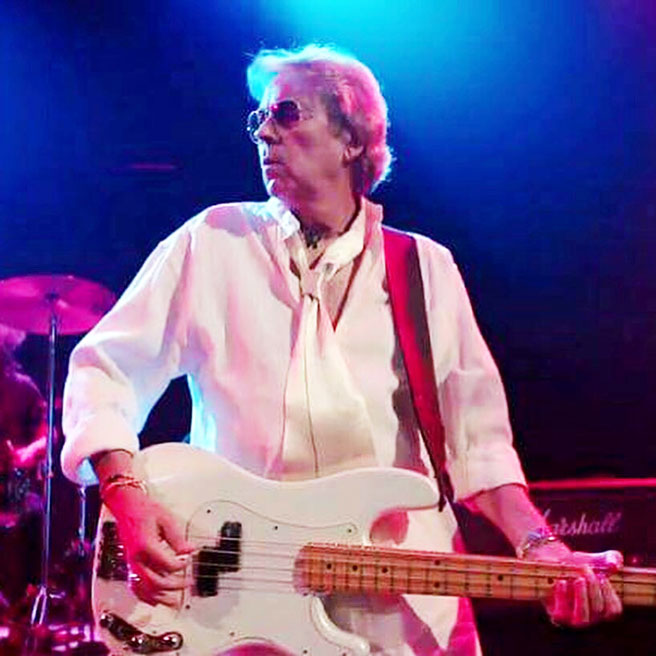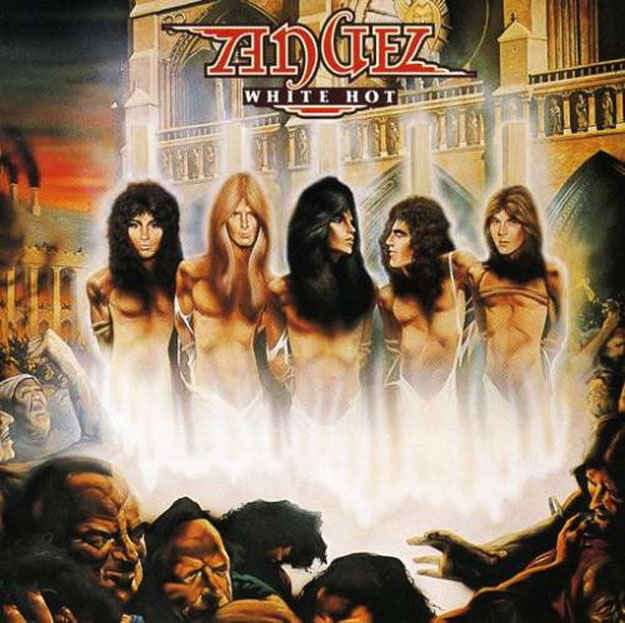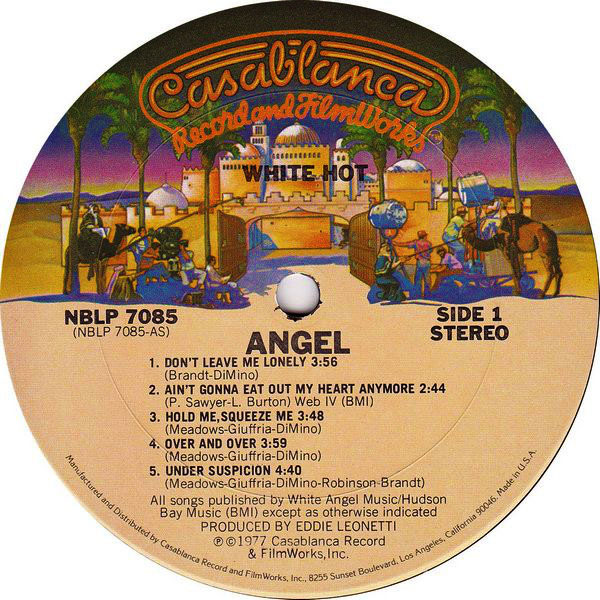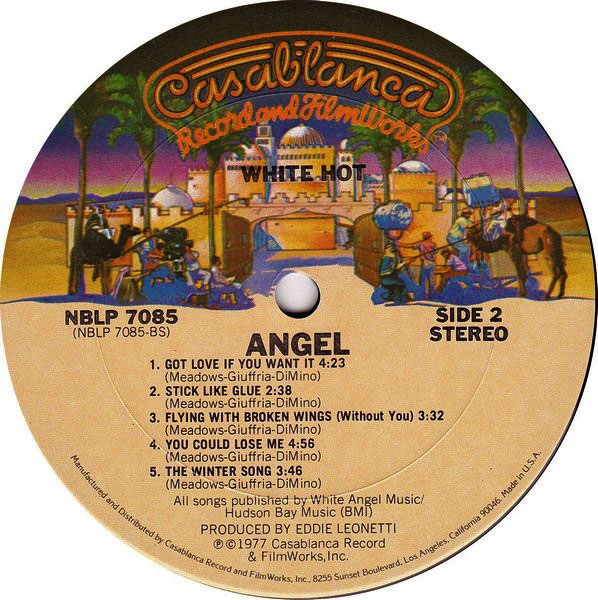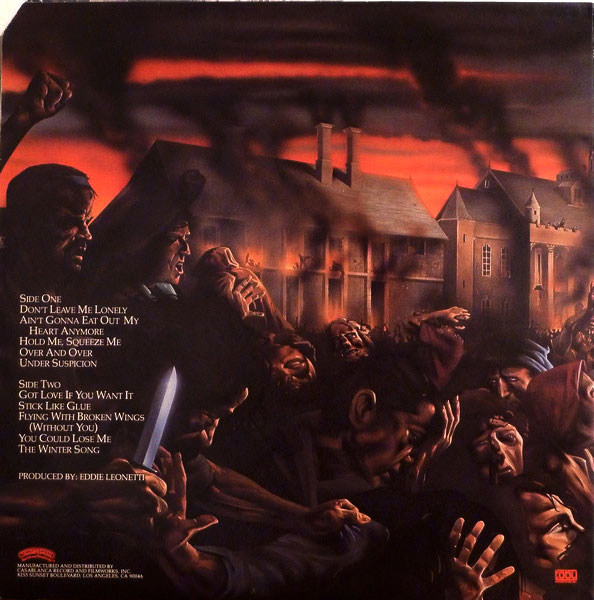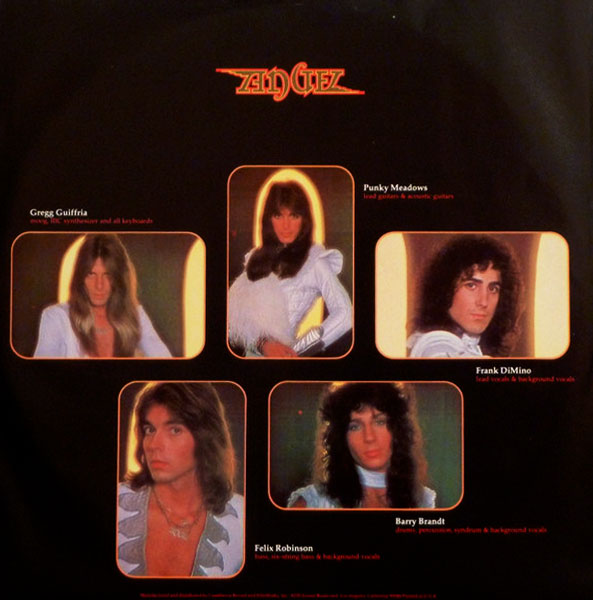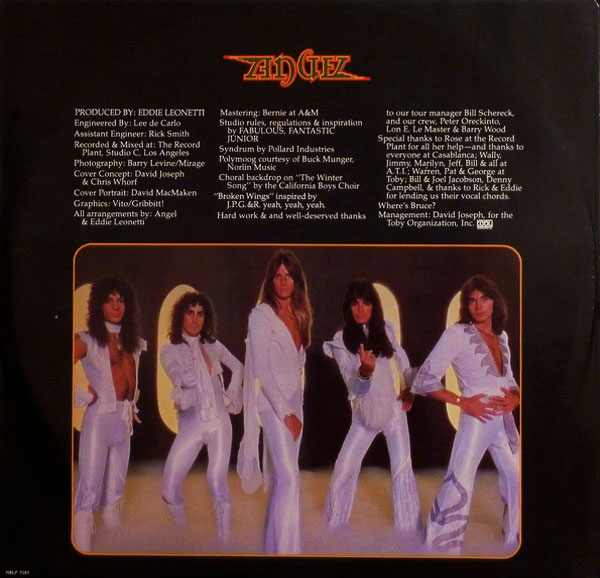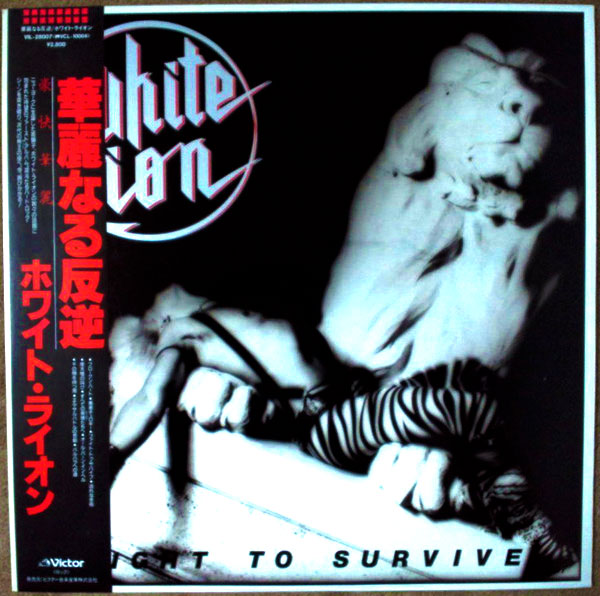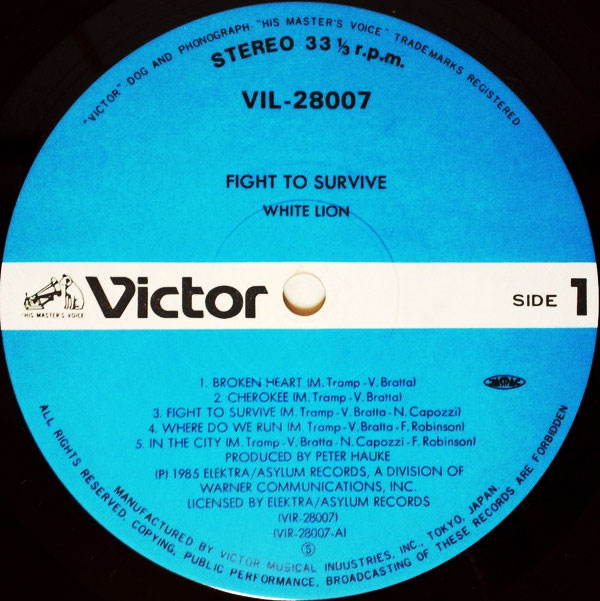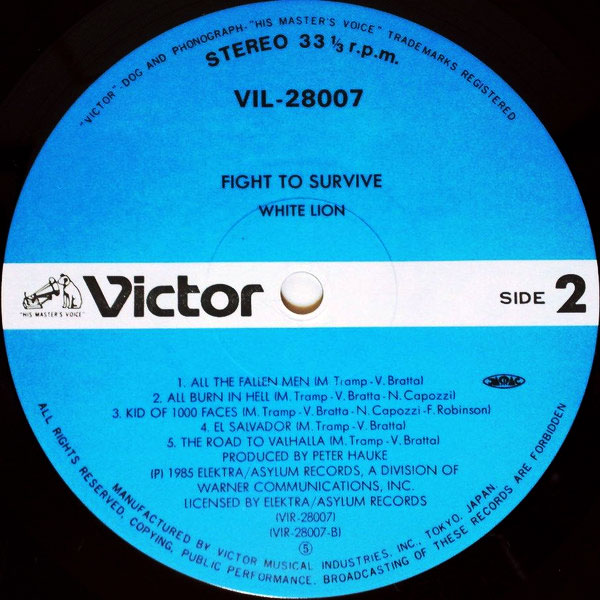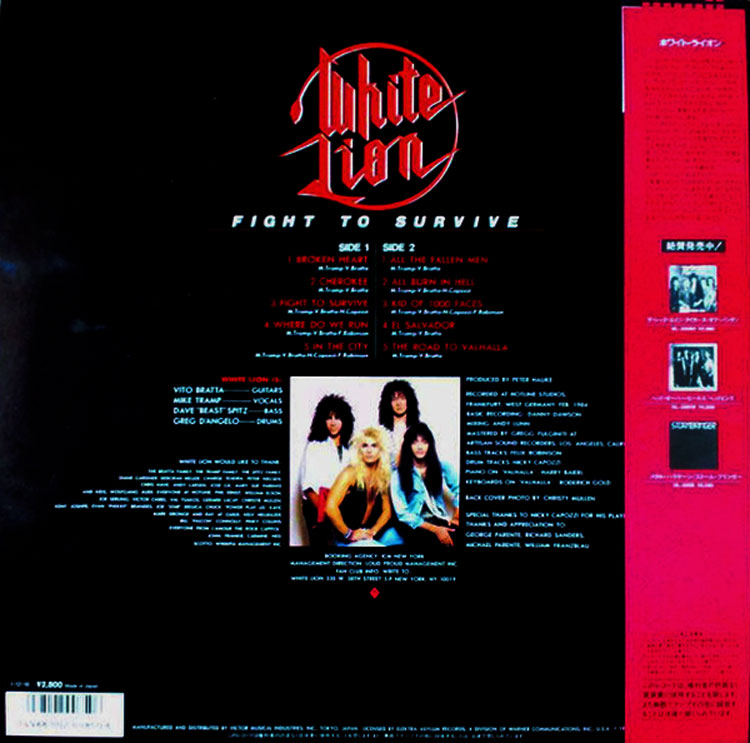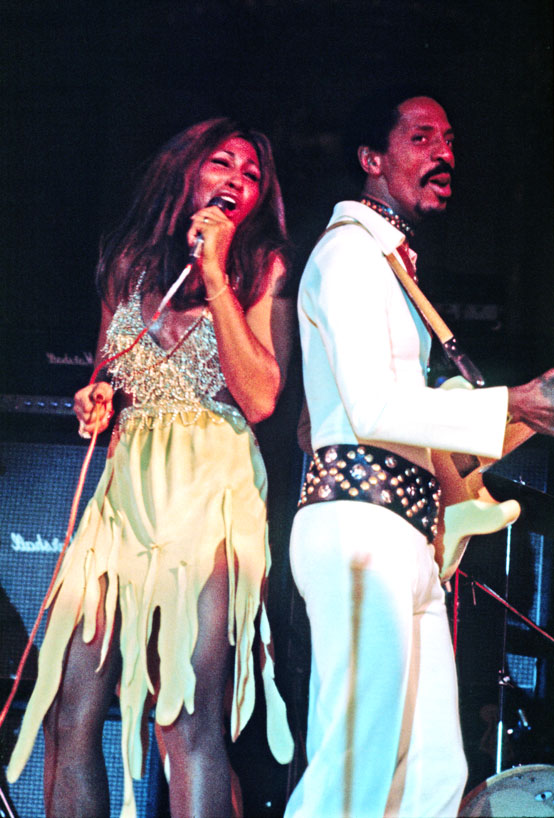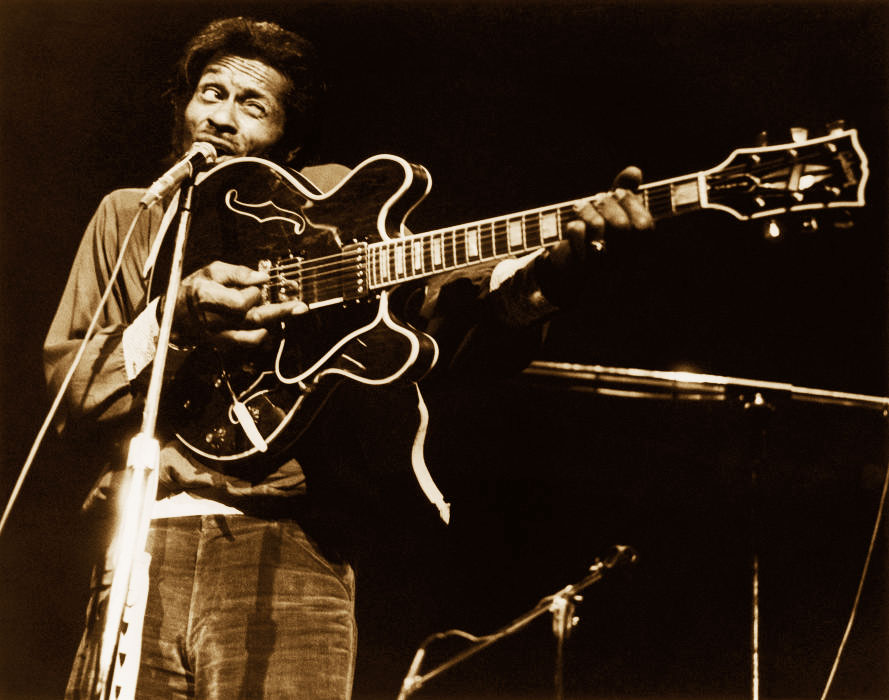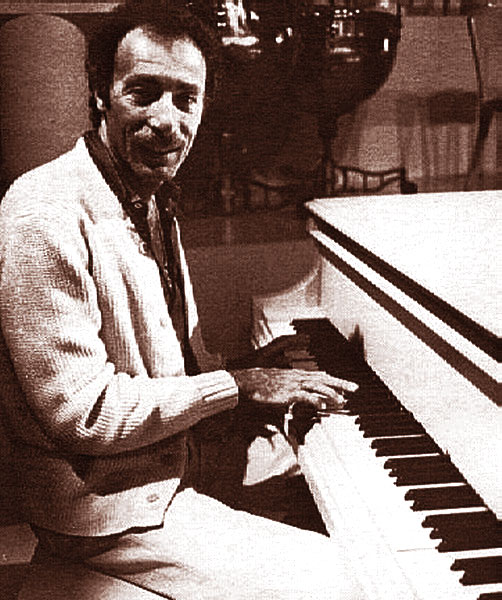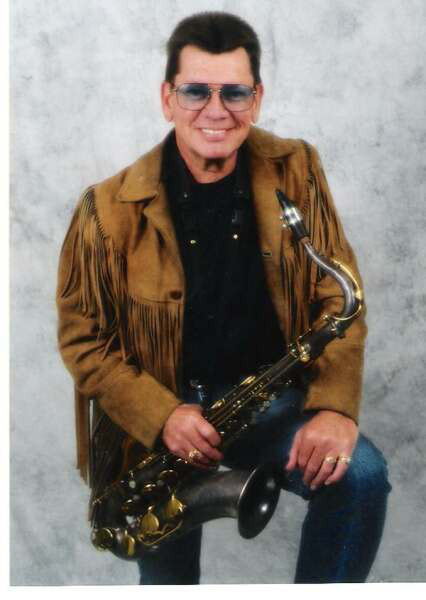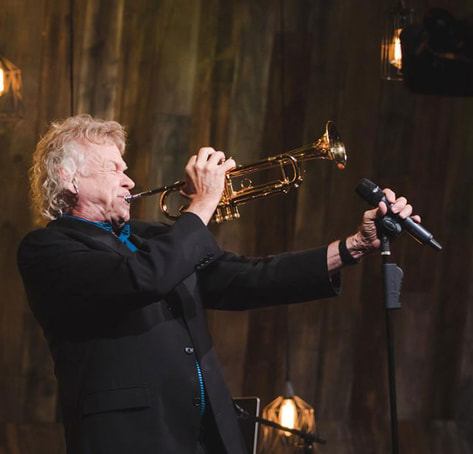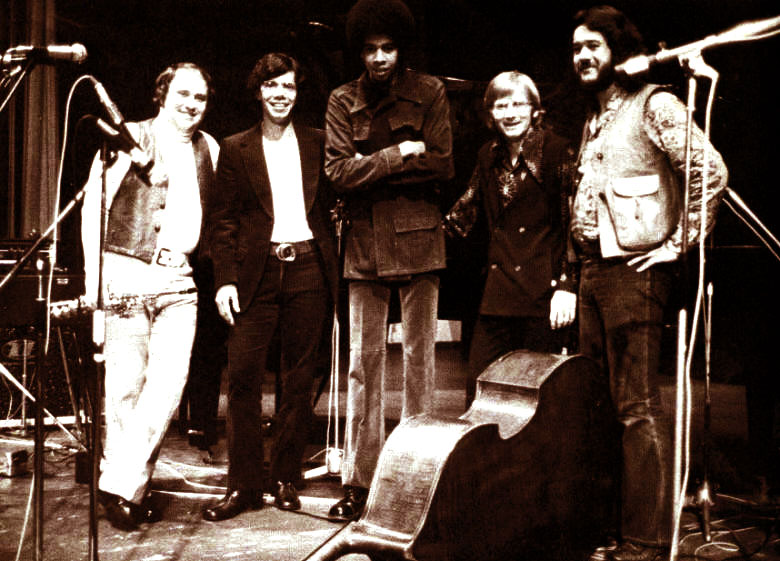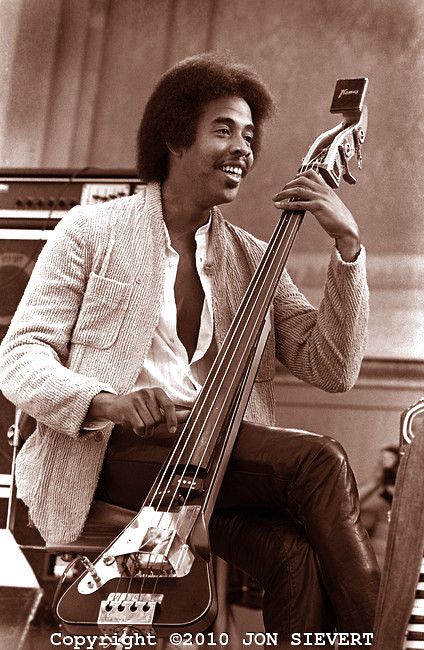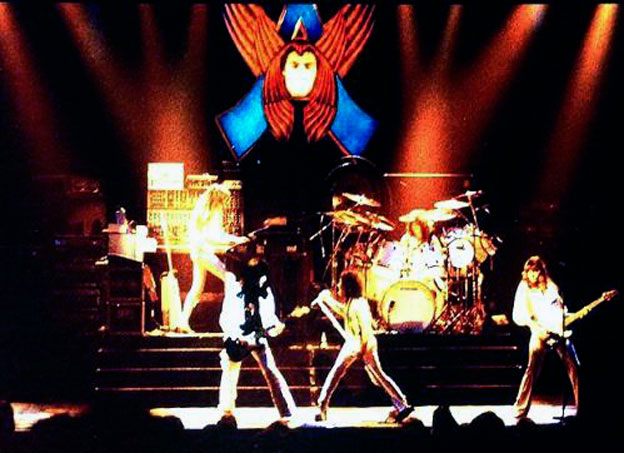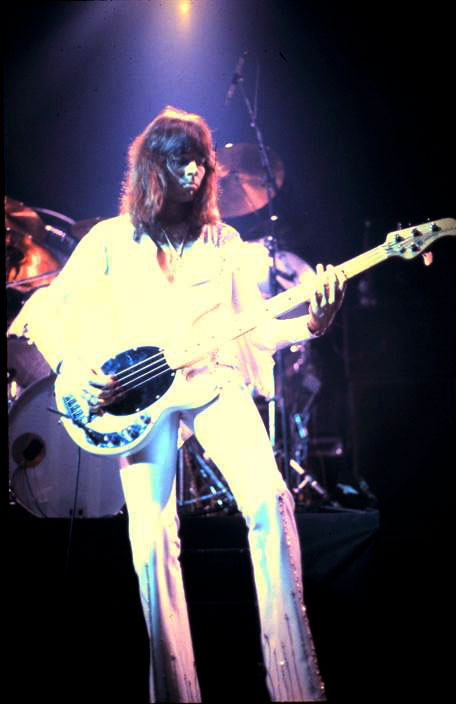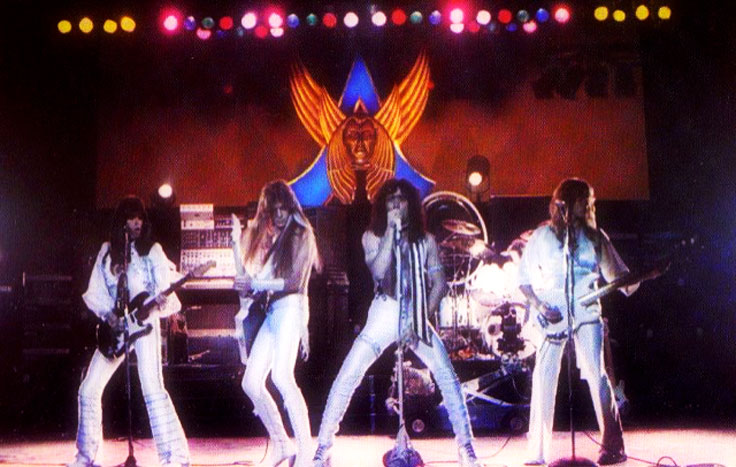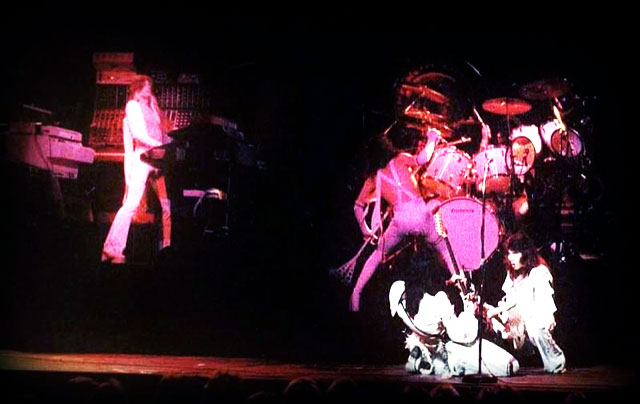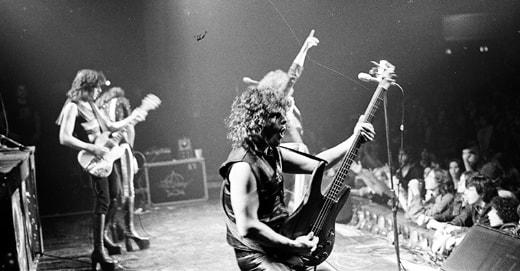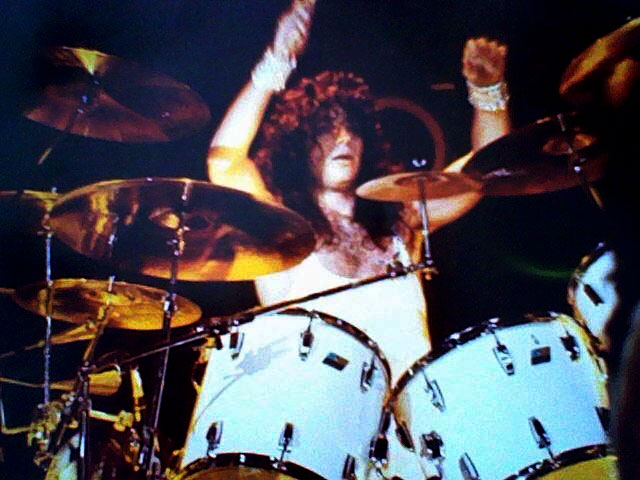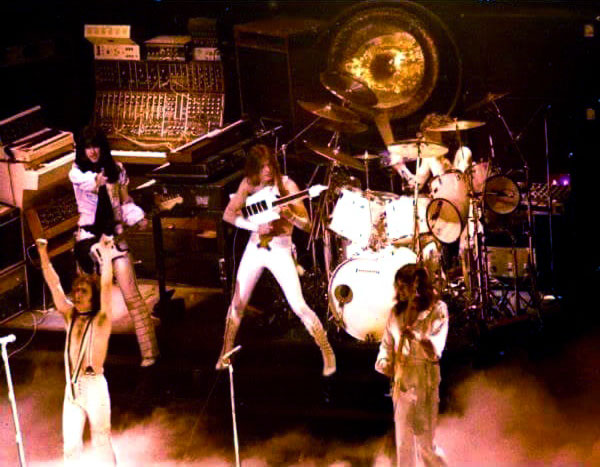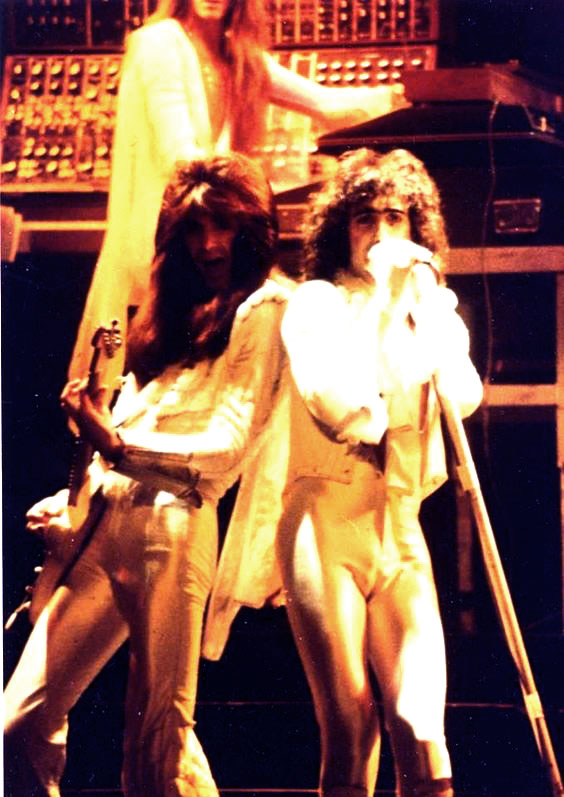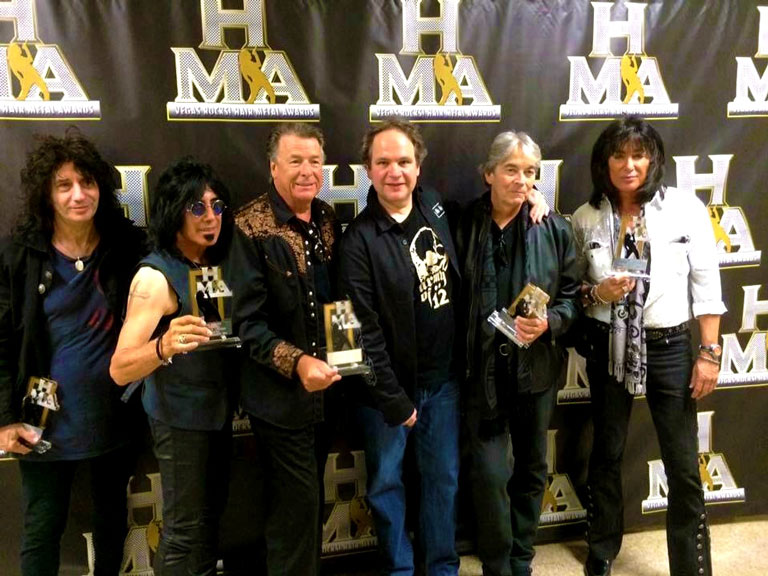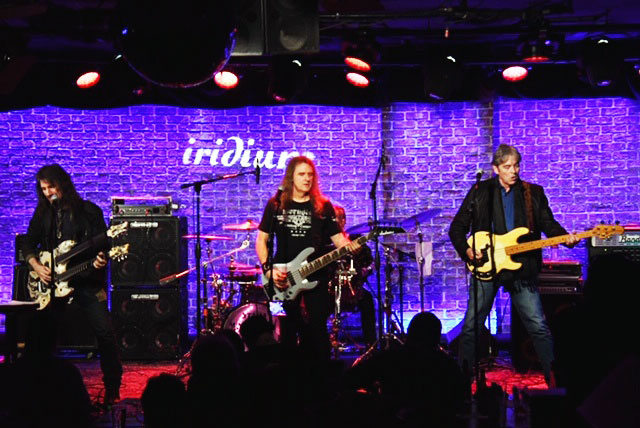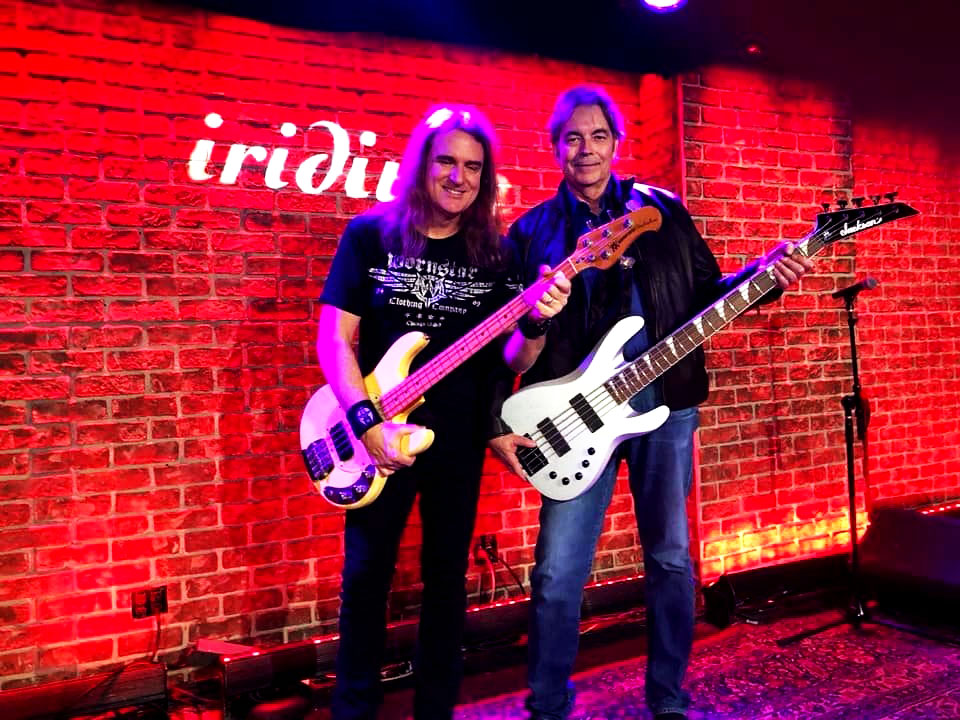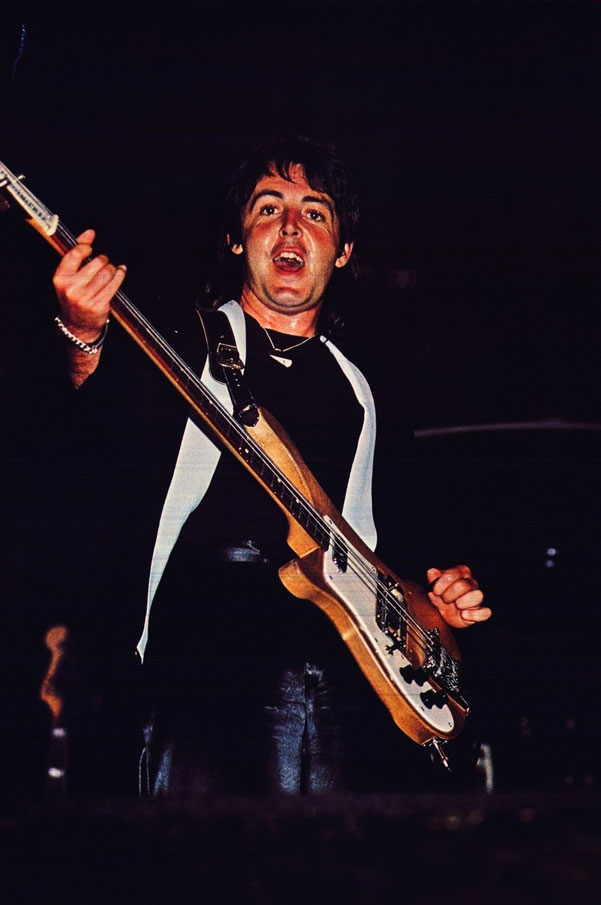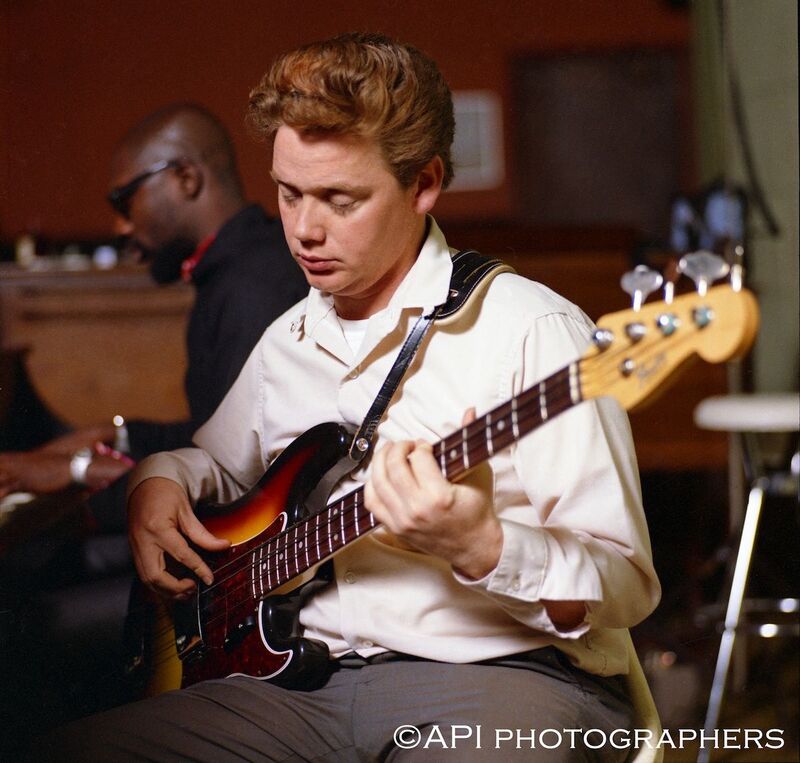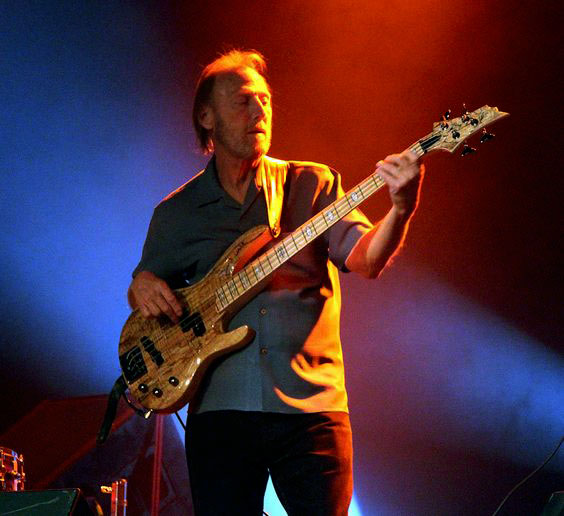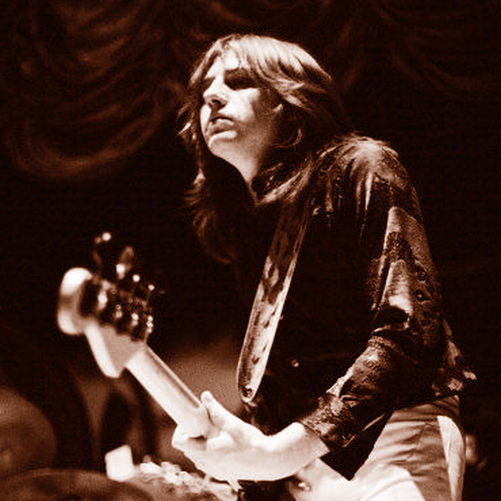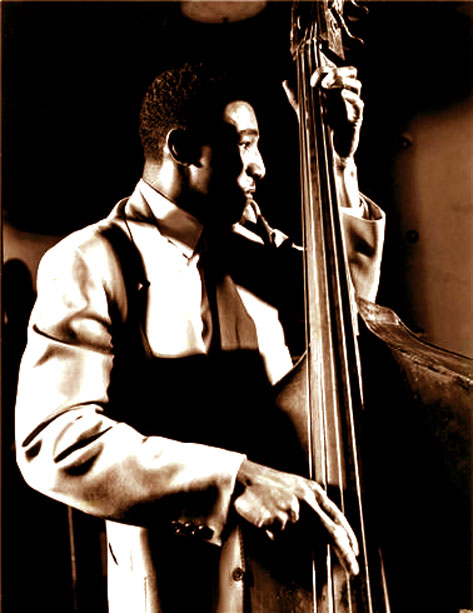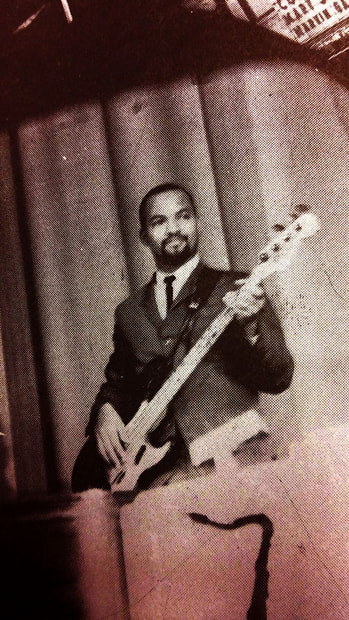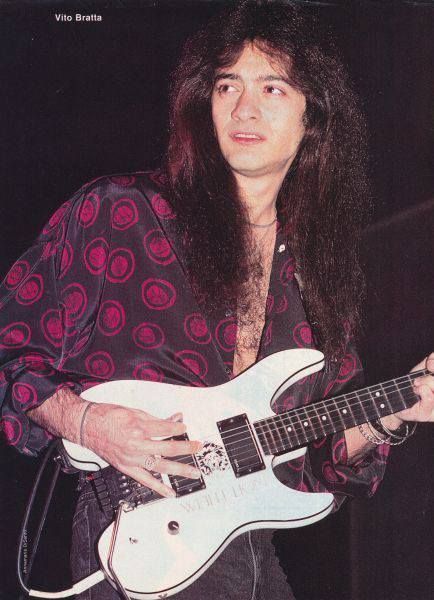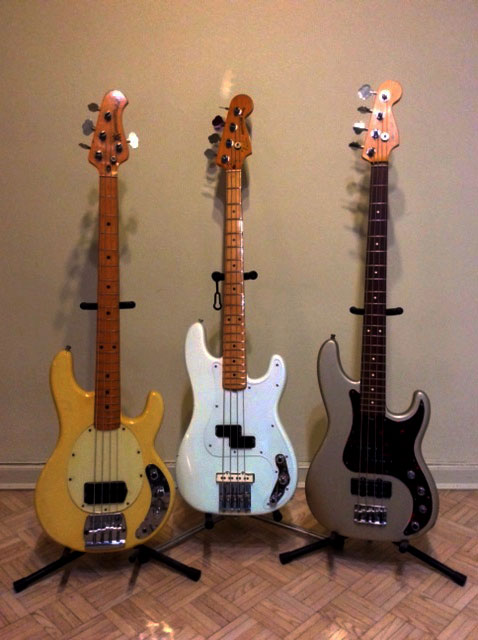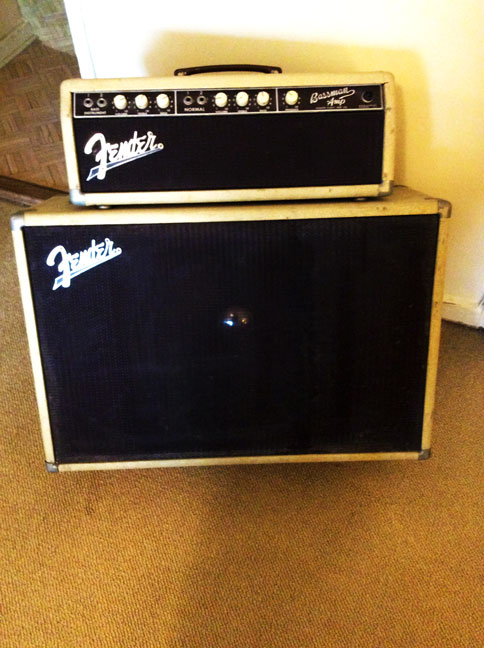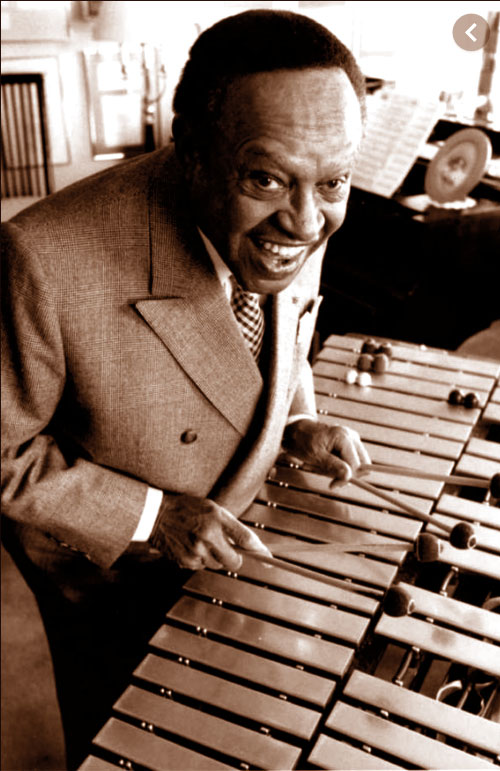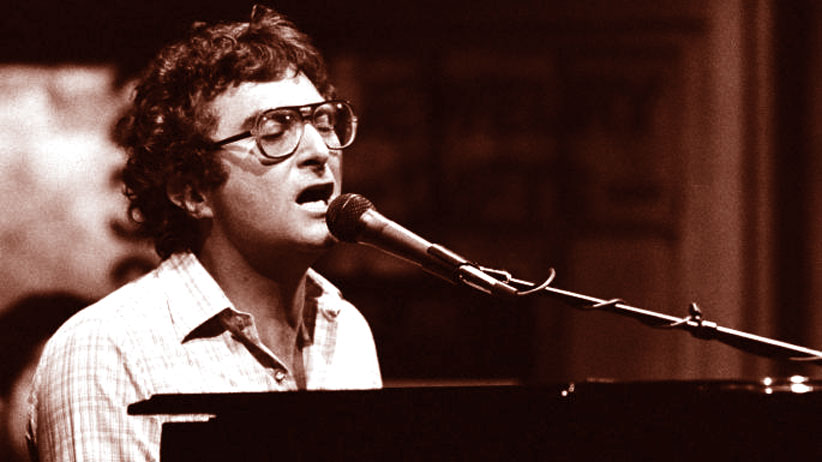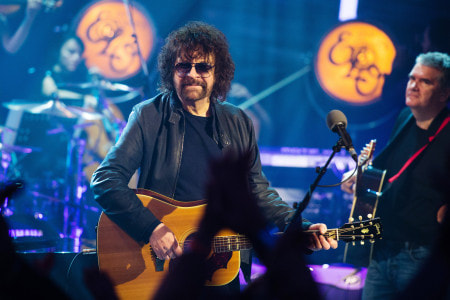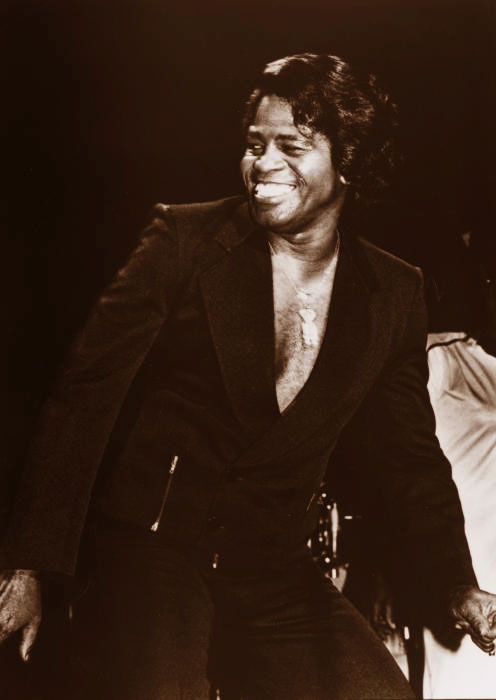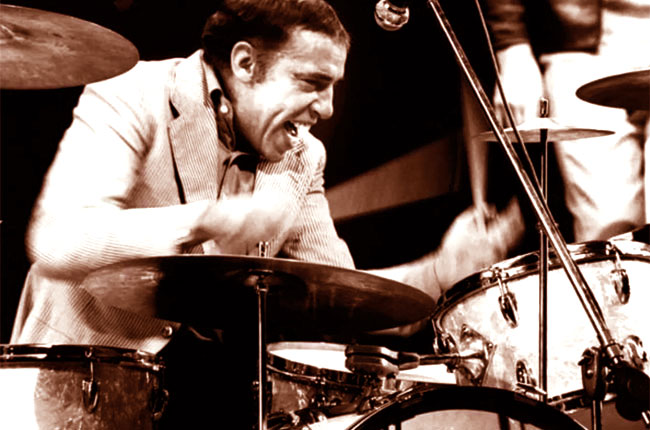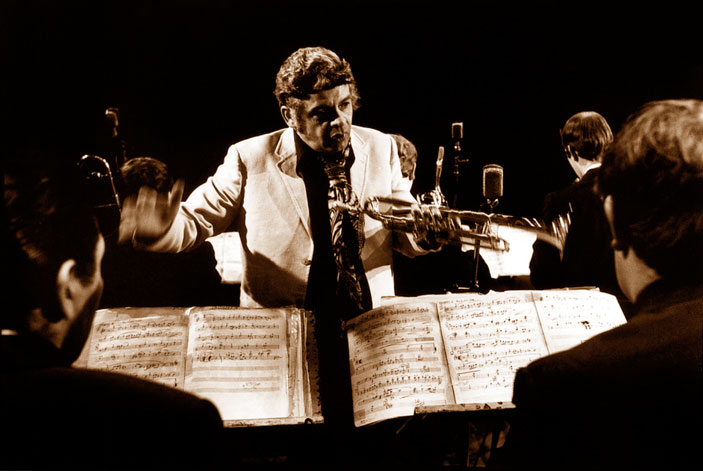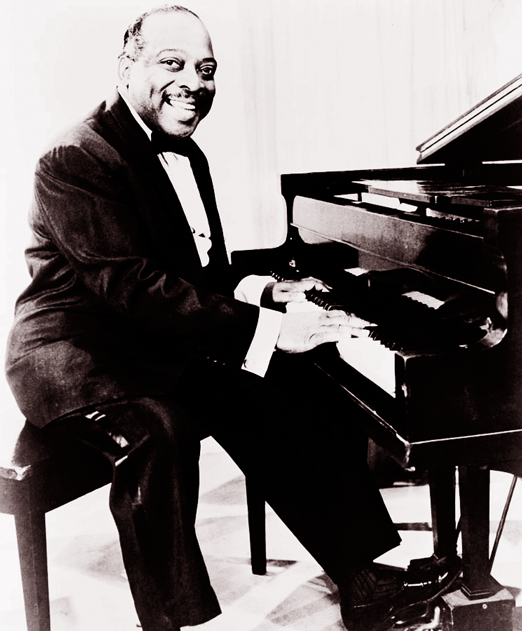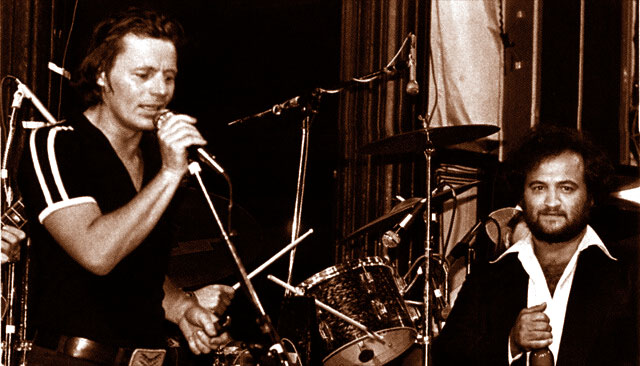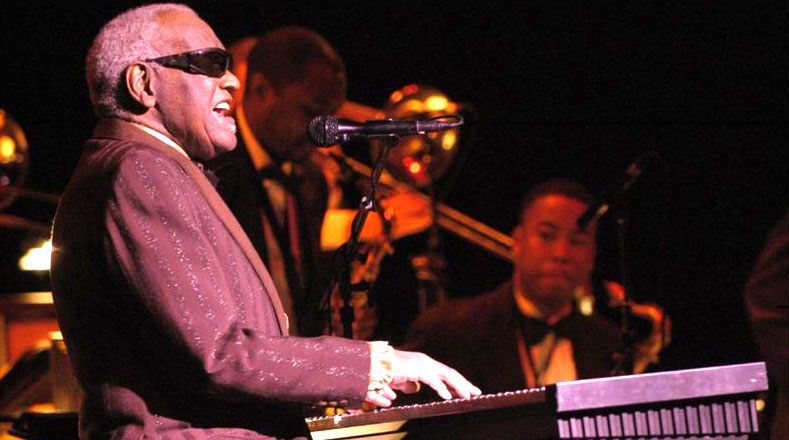NEVER SETTLED FOR ANYTHING LESS THAN YOUR OWN INDIVIDUALITY
INTERVIEW WITH
FELIX ROBINSON
INTERVIEW WITH
FELIX ROBINSON
|
«The bass can drive the energy, put power into the momentum of the arrangement, and solidify the whole musical theme behind the vocals. But very often, bass parts are established by songwriters early in the process to be just support for the keys or guitar, and left alone thereafter. Whenever possible, I will find the approach that enhances the composition» |
Felix Robinson shall be regarded as a true and proper legend of electric bass. When he joined Angel band from the fourth album on (White Hot, 1977) in order to replace Mickey Jones, Robinson immediately proved his excellent stylistic as well as technical skill, by providing a valuable contribution to the group.
Felix Robinson has played bass also on the first and unforgettable White Lion’s record called Fight To Survive, released in November 9 of 1985 and which still remains an unsurpassed cornerstone of american hard rock.
His solid and refined style which is also full of r’n’b and even jazz influence, is a permanent source of inspiration for many bassists.
We leave you to this really datailed interview with a great creative artist of bass playing and composition.
His solid and refined style which is also full of r’n’b and even jazz influence, is a permanent source of inspiration for many bassists.
We leave you to this really datailed interview with a great creative artist of bass playing and composition.
|
BMF: Let’s start from your beginnings. How did you come to electric bass? FR: My first musical instrument was piano. I received weekly lessons and learned to read and perform the typical Mozart, Beethoven and Brahms beginner’s repertoire. By my early teens I had acoustic and electric guitars and was learning the latest rock and pop music of the early sixties. St. Louis was a sizable city with a variety of really great local performers – Chuck Berry, Ike and Tina – and a host of local names who were just as talented, so I soaked up everything I could find on radio, records, and local TV. I also started learning and playing in the school orchestra. Trombone for a year, trumpet for two, and then made a leap from piano to taking theater organ lessons. You see, my father owned a business that regularly displayed products at regional trade shows and county fairs. We often shared booth space with an organ and piano distributor, and since I was occasionally helping to staff the booth, I was lured into performing on the Hammond B3 that was located right there. That attracted people to stop and listen to this skinny little kid kicking bass pedals and playing show tunes and popular songs that I just learned by ear. It seemed that I could listen to a song once and quickly perform it. That gift, plus the wide range of styles with the multiple instrumental capabilities had me ready to advance to more professional possibilities. Of course my first bands (other than school stage band and orchestra) were with school chums and friends. |
There were lot’s of guitar players but very few playing bass, so I took the bass parts and detuned my guitar, then soon bought a bass and, applying what I had learned from piano and orchestrated bass clef chord construction, quickly adapted. We were playing the high school parties, dances, and talent shows. While still in high school I joined a regional group that had actually released records and were performing paying gigs at night clubs and events. I was 17 years old. The day after I graduated high school I left St Louis and went to Las Vegas with that group, where we played 5 sets a night in a casino showroom from 12 to 5AM. So, I locked into playing Bass professionally before I turned 18.
Upon retuning to St. Louis I was hired by the an already successful working group and performed at the area’s best venues and events. That lasted a couple of years until I was hired for performances and album recordings in Memphis and Los Angeles by Phil Driscoll, playing guitar, bass, and keys, as well as occasional second trumpet and support vocals, I got to work with some notable producers (Jeff Barry, Charles Chalmers) and engineers and learned to understand the process. Be on time, know your parts, adapt to changes, and get along with sometimes difficult personalities.
|
BMF: Which were your first musical influences? FR: I am a sponge for quality musicianship, and have been blessed to perform with many individuals who have influenced me as a musician. In 72’ I did a jazzy funk album at A&M records in Hollywood and walked into a session in progress (observing) that included Stanley Clarke and the entire Return to Forever group recording their first album. I was at that time, concentrating on developing my mental and physical dexterity, plus abilities to play comfortably in multiple time signatures and complex arrangements that allowed improvisation while keeping to the composition’s essential approach. Sitting in that control room, watching and listening to those guys preparing material for their first album was both a revelation and a lighting bolt of reality for me. I was experiencing how much innate ability it took to generate that kind of creativity. I was never the same as a bass player. I vowed to concentrate on what I could truly accomplish instead of trying to emulate other players. How’s that for a reality check? Be the best you can be, keep working, and concentrate on following your path to success instead of spending most of your time woodshedding and trying to copy what somebody else does. That’s my advice to aspiring bass players. We can’t all be Stanley Clarke. |
BMF: Would you like to tell us about how your long path shared with Angel started?
In 73-76 I was back living in St. Louis and working with a group that I started with some great local musicians. We worked the club circuit from St. Louis to Chicago and made a little money, but my goal was to get back to LA and the real business of music. A friend who owned the largest sound system company in the area called me and suggested I should come to a show at the Fox Theatre he was working with, and to see a new band out of LA (Angel). He said “these guys are getting a lot of hype, and they really need a good bass player”. I went, sat at the main console, and watched the entire show (Starz opened) and went backstage after, met the band and crew. My impression from watching the show was that their songs were different and interesting, but their live performance was plodding and without enough drive. However, the image and presentation had something really cool and appealing.
It was a few months later that people I knew in LA wanted to start a group to record original music, and that Angel’s tour manager was going to manage this effort. Did I want to join them and get out of the midwest? Of course! I arrived in LA and began rehearsing for what we expected to become a record deal and, for me, back in action. It took a little longer than expected.
In 73-76 I was back living in St. Louis and working with a group that I started with some great local musicians. We worked the club circuit from St. Louis to Chicago and made a little money, but my goal was to get back to LA and the real business of music. A friend who owned the largest sound system company in the area called me and suggested I should come to a show at the Fox Theatre he was working with, and to see a new band out of LA (Angel). He said “these guys are getting a lot of hype, and they really need a good bass player”. I went, sat at the main console, and watched the entire show (Starz opened) and went backstage after, met the band and crew. My impression from watching the show was that their songs were different and interesting, but their live performance was plodding and without enough drive. However, the image and presentation had something really cool and appealing.
It was a few months later that people I knew in LA wanted to start a group to record original music, and that Angel’s tour manager was going to manage this effort. Did I want to join them and get out of the midwest? Of course! I arrived in LA and began rehearsing for what we expected to become a record deal and, for me, back in action. It took a little longer than expected.
We showcased, and gigged around LA and Southern California for a few months. We were playing in Santa Barbara one week at a club and in walked some of the guys from Angel. They stayed for a couple of sets and we made small talk. They had come to see this group that Bill - their Tour manager- was handling, but I surmised what was also on the agenda was to see and hear the bass player. A few weeks later I got a call to join a songwriting session for their next album, (White Hot). Frank, Punky, Greg and I spent a few days putting ideas together and forming the basic arrangements of several new tunes. As we’re building these new songs I’m thinking “why should I compose bass parts that their existing bass player, though limited in skill can play, when the tune really needs something much more aggressive and creative”?
So, I created parts - precise parts - that I knew the songs needed, The hell with ghosting parts that made no use of my playing skills. I remember saying once, “I’m not sure that your bass player will be able to learn these parts, so if you need, I can work with him to help, but what makes more sense is to have me handle the recording, or maybe find a better bassist for your band”. Later, we did a live rehearsal and shortly after that I got a call from their manager who asked “Felix, how would you like to be the next bassist for Angel?”
I know there are Angel fans who prefer the band as it was during the first three albums, and have an affinity for the early versions. I totally understand. But when we started rehearsing and recording, and especially when we began rehearsals for the next tour, there was an atmosphere of excitement and freshness, even of the older material, that made us all feel great and have a lot of fun. Barry Brandt and I used to collapse in hysterical joyful laughter sometimes at the conclusion of some powerful improvisation during rehearsal. That’s when you know it’s good. From that point forward, we got things done with energy and at a pace that increased the productivity and quality of the music. Too bad the music business had to keep controlling our creative impulse instead of protecting and nurturing what we could do as musicians and composers, - not just treat us as rock stars and money makers for the label and our management.
So, I created parts - precise parts - that I knew the songs needed, The hell with ghosting parts that made no use of my playing skills. I remember saying once, “I’m not sure that your bass player will be able to learn these parts, so if you need, I can work with him to help, but what makes more sense is to have me handle the recording, or maybe find a better bassist for your band”. Later, we did a live rehearsal and shortly after that I got a call from their manager who asked “Felix, how would you like to be the next bassist for Angel?”
I know there are Angel fans who prefer the band as it was during the first three albums, and have an affinity for the early versions. I totally understand. But when we started rehearsing and recording, and especially when we began rehearsals for the next tour, there was an atmosphere of excitement and freshness, even of the older material, that made us all feel great and have a lot of fun. Barry Brandt and I used to collapse in hysterical joyful laughter sometimes at the conclusion of some powerful improvisation during rehearsal. That’s when you know it’s good. From that point forward, we got things done with energy and at a pace that increased the productivity and quality of the music. Too bad the music business had to keep controlling our creative impulse instead of protecting and nurturing what we could do as musicians and composers, - not just treat us as rock stars and money makers for the label and our management.
BMF: Angel were a legendary band, as they were really important not just for melodic rock scene (which till today continues to draw inspiration from your music). Many people think that the group didn’t get the recognition that deserved, but the fact remains nobody can deny the crucial role you played. What’s your opinion about that?
FR: I have always, when playing electric bass in a rock band, taken the approach that the bass has to be an essential part of what establishes the texture and emotion within the song, not just the low end of the guitar part and an accompaniment to the kick drum. The bass can drive the energy, put power into the momentum of the arrangement, and solidify the whole musical theme behind the vocals. But very often, bass parts are established by songwriters early in the process to be just support for the keys or guitar, and left alone thereafter. Whenever possible, I will find the approach that enhances the composition. When I was in Angel, I would listen early-on to what the lyrics and the melody were doing, and find a pattern that worked on it’s own - before the guitars and keys and vocals were finished. Then as Punky and Greg, and Barry were closing in on their interpretations, they were finding a solid foundation for the rhythm, the energy, and the mood of the songs. That’s partly why the sound of the band changed and we started becoming more creative with our song writing. We started having real Intros, hooks, break-away bridge pieces, and melodic chordal arrangements behind solos, as well as big harmonies and support vocals.
I’m really grateful that there are people that have enthusiasm and respect for what we did. And it’s sometimes nostalgic to revisit past accomplishments, there’s hopefully plenty of future ahead and as I now have my own studio and am actively pursing roles with production and arranging for other artists, and draw on those experiences , remembering when the songs were really at their best - before so much got in the way.
FR: I have always, when playing electric bass in a rock band, taken the approach that the bass has to be an essential part of what establishes the texture and emotion within the song, not just the low end of the guitar part and an accompaniment to the kick drum. The bass can drive the energy, put power into the momentum of the arrangement, and solidify the whole musical theme behind the vocals. But very often, bass parts are established by songwriters early in the process to be just support for the keys or guitar, and left alone thereafter. Whenever possible, I will find the approach that enhances the composition. When I was in Angel, I would listen early-on to what the lyrics and the melody were doing, and find a pattern that worked on it’s own - before the guitars and keys and vocals were finished. Then as Punky and Greg, and Barry were closing in on their interpretations, they were finding a solid foundation for the rhythm, the energy, and the mood of the songs. That’s partly why the sound of the band changed and we started becoming more creative with our song writing. We started having real Intros, hooks, break-away bridge pieces, and melodic chordal arrangements behind solos, as well as big harmonies and support vocals.
I’m really grateful that there are people that have enthusiasm and respect for what we did. And it’s sometimes nostalgic to revisit past accomplishments, there’s hopefully plenty of future ahead and as I now have my own studio and am actively pursing roles with production and arranging for other artists, and draw on those experiences , remembering when the songs were really at their best - before so much got in the way.
|
BMF: I suppose that the idea of getting the band back together was automatic and probably it must have been proposed to you a lot of times. What can you say about that? What’s your relationship with the other members of the band? FR: You may know that we all got together a short time ago (2016) in Vegas where we received an award, and man, was that great! Just sitting together, at one point alone before the event, enjoying making fun of everything and ourselves, how can that not be the best? Yes, we seriously discussed the idea of getting together for some shows. It’s not impossible to pull off. Punky and I have played together on his latest record and at a couple of gigs and Frank joined us for a tune on that record. Lately, Frank and Punky have been doing shows all over the place. I know it’s not the whole band, but maybe there will develop enough investment interest to fund an actual reunion. There is an independent film in development that will depict the history of Angel and we are excited about that. |
|
BMF: Do you think that Casablanca Records at that time was able to make all the necessary efforts in order to valorize Angel? FR: I’m sure that those who were actually responsible for handling our on-going affairs were and are convinced that they did everything - and more. I can now see why that is not entirely correct, without blaming anyone for not doing something, or spending more, or caring enough, because I know that all happened. But the enormous investment that was being made financially became the ruling force, and we fell into the dark side of the music business. They created too much debt to be afforded the freedom to use our imaginations and have the time to create the music that we were capable of. So, we’re all to blame for that and, it’s impossible to change what happened. BMF: You are rightly considered an extremely influential bassist and today many hard rock bassists mention you between their major inspirations. Who are in your opinion the bassists whom you consider as the most important as regards the hard rock scene, beside you? And who do you like today? Through social media connections I’ve been fortunate to hear from many people that have expressed appreciation and said they were influenced by my work in Angel. I was blown away when I hung with David Ellefson from Megadeth last time he was in town and listened to him talk about how much my playing influenced his development. But he just did what we all do, and that is to take something from everything we hear, and he was into Angel at just the right time. I’m sure there are other great bassists who listened to my stuff and never gave it another thought. |
While it’s gratifying to hear from those players who express appreciation for things from my past, it is clear in my mind that some of my best playing is ahead of me, and I’m always eager to be asked to record, perform, produce and arrange for other musicians.
Tracking origins is tricky, especially if, as I have, a musical career that has involved many styles and influences. But, to toss out some names I will mention Sir Paul as an early influence, as well as James Jamerson, Ray Brown, Greg Lake, Francis Rocco Prestia, and Duck Dunn as players who I admire.
Tracking origins is tricky, especially if, as I have, a musical career that has involved many styles and influences. But, to toss out some names I will mention Sir Paul as an early influence, as well as James Jamerson, Ray Brown, Greg Lake, Francis Rocco Prestia, and Duck Dunn as players who I admire.
|
BMF: You have played on a much-acclaimed album, the first work of White Lion called “Fight To Survive”. We know that your relationship with the band was ruined along the way. Could you tell us what happened and why you didn’t continue to play with them? I was one of the four formative members and was responsible for building their songs from ideas into compositions ready to record, as well as all bass, backing vocals and some keyboards on the first album, as well as co-authorship of some songs on their second and third albums. But, there were problems with Elektra after the first record was completed and I could not see a future for me with that situation. I quit, and then had to sue the band and their management for my fair share, which they tried, but failed to conceal and that’s the story. I won the legal challenge, got paid, they changed the album cover and credits, and everybody moved on. I have no bad feelings toward the guys because I could see the causes of the situation and, frankly, it looked to me as if the way things were set up for them contractually was going to benefit the managers, the lawyers, the record companies - the fix was in, so that’s where the money went - by design. I’m thinking of asking Vito to play on one of my next recordings…he is a very special guitar player and we had a great time creating that first album. I also stay in touch with Nick Capozzi, who is an exceptional drummer. We’ve discussed playing together. It would be great if we could include Vito in that plan. |
BMF: Have you ever thought to record a solo album? You were so skilled also on the other instruments in addition to be able to sing…
FR: Thank you for those kind words Luca. I am in the development phase on that right now. I had a set back last year with a health problem but that’s all behind me now. I’m actually typing this in my studio on the same super computer that I run Protools on. I’m starting to work through decades of songwriting backlog and learning digital engineering at the same time. I would like to hear from other people’s experience and share the learning process. I invite correspondence at my facebook page or messenger.
BMF: What’s your current relationship with the universe of music? What are you working on and what about your plans for the future?
FR: To create simple music that people can hear and easily understand. And - to also make complex music that needs to be explored, but NOT to try and do both in the same song!
Also, I am now pursuing music and production/arranging full time, as well as playing and performing wherever the opportunities arise.
FR: Thank you for those kind words Luca. I am in the development phase on that right now. I had a set back last year with a health problem but that’s all behind me now. I’m actually typing this in my studio on the same super computer that I run Protools on. I’m starting to work through decades of songwriting backlog and learning digital engineering at the same time. I would like to hear from other people’s experience and share the learning process. I invite correspondence at my facebook page or messenger.
BMF: What’s your current relationship with the universe of music? What are you working on and what about your plans for the future?
FR: To create simple music that people can hear and easily understand. And - to also make complex music that needs to be explored, but NOT to try and do both in the same song!
Also, I am now pursuing music and production/arranging full time, as well as playing and performing wherever the opportunities arise.
BMF: Would you like to talk about the gear at the age of Angel? And more generally what are the basses you have preferred during your career?
FR: After a succession of Fender Jazz, Precision, Rickenbacker, and assorted custom basses I got used to a Music Man Stingray that was one of the the first delivered to Guitar Center on Sunset Blvd in 1977. I still have it, as well as some other instruments that have accumulated through the years. The MM has active tone so in Angel I could run the amps almost wide open and adjust tone and volume myself. I never really used effects pedals live but did made use of extreme volume from the wall of SVTs that Ampeg gave me along with a factory technician who traveled with me just to repair them every night because I would blow up at least one or two every show.
Those amps were durable but they had never been tested in the conditions that I created . At one time, I toyed with the idea of tripling the number of amps and speaker cabinets and dispersing them through the PA and stage, but that plan didn’t materialize as our next tour was downsized to accommodate our new manager’s plans for the band, which was to keep us on a multi-act tour that limited our staging, backline and playing time.
After Angel, I used some solid state power and tube pre-amps for a while. Now if I have a large venue gig I will use the largest rig available. For small or recording gigs I have a 62 Bassman with a single 15 that really sings.
FR: After a succession of Fender Jazz, Precision, Rickenbacker, and assorted custom basses I got used to a Music Man Stingray that was one of the the first delivered to Guitar Center on Sunset Blvd in 1977. I still have it, as well as some other instruments that have accumulated through the years. The MM has active tone so in Angel I could run the amps almost wide open and adjust tone and volume myself. I never really used effects pedals live but did made use of extreme volume from the wall of SVTs that Ampeg gave me along with a factory technician who traveled with me just to repair them every night because I would blow up at least one or two every show.
Those amps were durable but they had never been tested in the conditions that I created . At one time, I toyed with the idea of tripling the number of amps and speaker cabinets and dispersing them through the PA and stage, but that plan didn’t materialize as our next tour was downsized to accommodate our new manager’s plans for the band, which was to keep us on a multi-act tour that limited our staging, backline and playing time.
After Angel, I used some solid state power and tube pre-amps for a while. Now if I have a large venue gig I will use the largest rig available. For small or recording gigs I have a 62 Bassman with a single 15 that really sings.
For me, the most important thing is being able to reproduce the sound that I create with my instrument, and increase that with amplification. For heavy rock I like a lot of bite and keeping the bass up in the mix where I can blend with the guitars. I don’t like that tubby sound that many live engineers use and will work with the live or recording engineer to get my sound.
I have lots of outboard gear to compress and equalize signal for recording but live I’m most concerned with how the other instruments sound and to find the right fit for the sonic landscape with just the right blend to make the music complete. I know that equipment can become an obsession, but I have not followed that trend, although if a particular sound is important to the texture of a composition, then I will find the right combination of effects and enjoy using them - for that song.
I have lots of outboard gear to compress and equalize signal for recording but live I’m most concerned with how the other instruments sound and to find the right fit for the sonic landscape with just the right blend to make the music complete. I know that equipment can become an obsession, but I have not followed that trend, although if a particular sound is important to the texture of a composition, then I will find the right combination of effects and enjoy using them - for that song.
|
BMF: What was and still is your approach to fretless bass? FR: Interesting question. My 63 Precision started as a factory fretless, and when I went on a short tour in 73, opening for Lionel Hampton and other traditional swing era artists, I intentionally took only the fretless, even though up to then I rarely played it. Watching and listening every night to the upright players I was working with helped me to become comfortable with that approach to the instrument. It’s been years since I used one but now you have me thinking... |
BMF: As we mentioned before, from Angel derive a lot of bands and artists who clearly pay their dues in terms of inspirations. In the A.O.R./melodic rock/pomp scene the name of Angel is practically like a sort of primordial big bang. But in your music there were pop, progressive elements even close to some jazz structures that probably have been overlooked…
FR: Sure, maybe overlooked as those creative bursts were, in many cases the elements that I helped to inject into the group and not exactly congruent with the top 40 approach that our contemporaries were using. We did our fair share of emulating other bands’ songwriting that was getting more airplay than we were, and that probably obscured what our better musical capabilities in composition were at the time. Our record company and producers were trying to make us a hit record machine with glam rock sex-appeal, so we were pushed and pulled in multiple directions at once. Ultimately, I think it’s our own fault that we let all that control our destiny.
FR: Sure, maybe overlooked as those creative bursts were, in many cases the elements that I helped to inject into the group and not exactly congruent with the top 40 approach that our contemporaries were using. We did our fair share of emulating other bands’ songwriting that was getting more airplay than we were, and that probably obscured what our better musical capabilities in composition were at the time. Our record company and producers were trying to make us a hit record machine with glam rock sex-appeal, so we were pushed and pulled in multiple directions at once. Ultimately, I think it’s our own fault that we let all that control our destiny.
BMF: What kind of music do you usually listen to currently?
FR: Depends on my mood. For me it’s mostly about the songwriting. I’ve always been a big Randy Newman fan. He is, in my opinion, the most significant composer in my lifetime. I also love Jeff Lynne and his ability to write and perform beautifully complex songs that connect in a very simple way. In my car I keep AC/DC, Beethoven piano sonatas, and Delbert McClinton plus Ray Charles on tap. I’m all over the place with styles. I love well produced heavy metal and hard rock, but for me, it needs to have some form and melodic sensibility, not just powerful noise. I do like Korn, but I love the early James Brown stuff, so, there you go.
FR: Depends on my mood. For me it’s mostly about the songwriting. I’ve always been a big Randy Newman fan. He is, in my opinion, the most significant composer in my lifetime. I also love Jeff Lynne and his ability to write and perform beautifully complex songs that connect in a very simple way. In my car I keep AC/DC, Beethoven piano sonatas, and Delbert McClinton plus Ray Charles on tap. I’m all over the place with styles. I love well produced heavy metal and hard rock, but for me, it needs to have some form and melodic sensibility, not just powerful noise. I do like Korn, but I love the early James Brown stuff, so, there you go.
BMF: And finally what are the most important records for your training and that you would never renounce? You can list them without any limits as regards genres and number …
I listen to a varied representation of styles, and mostly things that I am eager to learn. I do play a lot of guitar - electric and acoustic, as well as keys so, those instruments can be featured in my playlists.
In my early development, after learning every Beatles tune they released, as well as other top 40, Motown and whatever else was playing on the radio, I started listening and studying the bassists in the still working big bands - Buddy Rich, Maynard Ferguson, Count Basie and others. I was lucky to share the stage with some of those legends a few times and watch how the musicians, especially the rhythm section players, went about their craft. I have some great stories that we don’t have room for here….
Having played multiple instruments professionally has brought to me a perspective on bass playing that may be a little different than the player who is dedicated to the one instrument. I firmly believe that in many situations, and, of course, depending on the style of music, the bassist is responsible for creating the foundation within the song. In almost any band, the other instrumentalists are provided the basis for their freedom to create and color their contributions based on what the rhythm section has established and the bass player is the one who must lead the drummer to find the groove that forms that structure. There will always be a need for bassists that have that ability.
I listen to a varied representation of styles, and mostly things that I am eager to learn. I do play a lot of guitar - electric and acoustic, as well as keys so, those instruments can be featured in my playlists.
In my early development, after learning every Beatles tune they released, as well as other top 40, Motown and whatever else was playing on the radio, I started listening and studying the bassists in the still working big bands - Buddy Rich, Maynard Ferguson, Count Basie and others. I was lucky to share the stage with some of those legends a few times and watch how the musicians, especially the rhythm section players, went about their craft. I have some great stories that we don’t have room for here….
Having played multiple instruments professionally has brought to me a perspective on bass playing that may be a little different than the player who is dedicated to the one instrument. I firmly believe that in many situations, and, of course, depending on the style of music, the bassist is responsible for creating the foundation within the song. In almost any band, the other instrumentalists are provided the basis for their freedom to create and color their contributions based on what the rhythm section has established and the bass player is the one who must lead the drummer to find the groove that forms that structure. There will always be a need for bassists that have that ability.

Luca De Pasquale-Manuela Avino 2019
